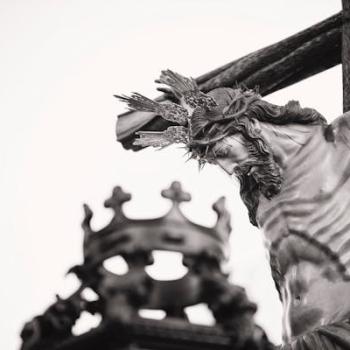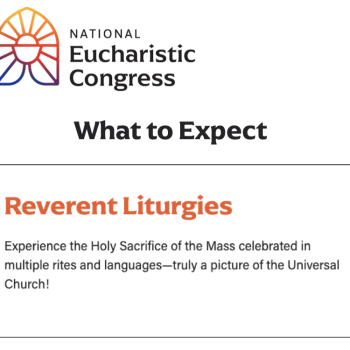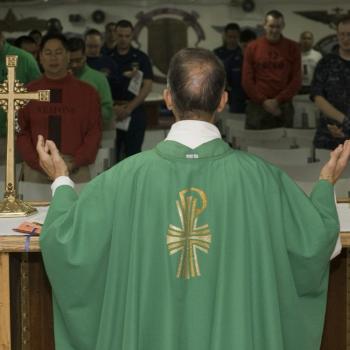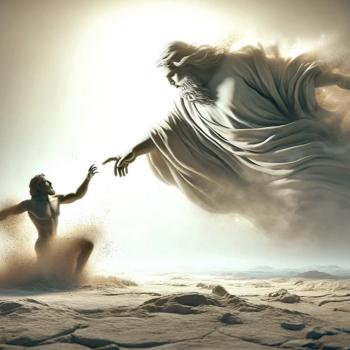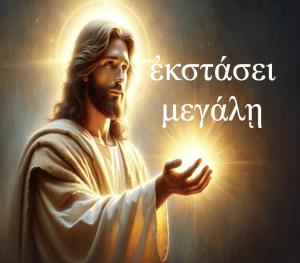
In the Gospel reading on the 13th Sunday in ordinary time, we listen to Mark’s pericope of the resurrection of Jairus’ daughter (Mk 5:21-43). Jairus was one of the synagogue officials. He approached Jesus, fell at his feet and pleaded earnestly, “My daughter is at the point of death. Please, come lay your hands on her that she may get well and live.”
Jesus took with him Peter, James and his brother, John. They followed Jairus to his house. Some people broke the sad news to Jairus that his daughter had passed. But Jesus reassured him, “Do not be afraid; just have faith.”
Reactions and emotions
They went inside the house, and found people weeping and wailing aloud. Jesus tried to calm them down telling them the child was not dead, but asleep. In response, they ridiculed him, so Jesus put them all out. Only his three apostles, Jairus and his wife remained inside.
Jesus took the child by the hand and said to her, “Talitha koum,” which means, “Little girl, I say to you, arise!” The girl arose immediately. The once who witnessed this were utterly astounded.
Around the miracle performed by Jesus, we see contrasting feelings and emotions. People wept, wailed, and ridiculed Jesus, because they didn’t have faith, neither in him, nor in his words. Jairus, his wife, and the three apostles instead, were utterly astounded after witnessing such a miracle.
Astonishment after Jesus resurrects the child
This utter astonishment is worth taking a deeper look. In the Greek version of Mk, we read,
καὶ εὐθὺς ἀνέστη τὸ κοράσιον καὶ περιεπάτει, ἦν γὰρ ἐτῶν δώδεκα. καὶ ἐξέστησαν ἐκστάσει μεγάλῃ” (v. 42)
In the Lectionary, ἐκστάσει μεγάλῃ is translated as “utterly astounded”. A literal translation, though, would be “immensely ecstatic”.
ἐκστάσει is the dative, singular, feminine form of the noun ἔκστασις, ecstasy. This means that those present at the child’s room, after seeing her alive again, were overwhelmed with emotion up to the point of almost falling into a state of trance —this is perhaps the closest translation to what the expression ἐκστάσει μεγάλῃ conveys in Greek.
Astonishment after the Resurrection of Jesus
It is interesting to find that the expression “utterly astonished” (in English), appears only twice in the Gospel according to Mark: in this episode and in the pericope of The Resurrection (16:1-8). When Mary Magdalene, Mary, the mother of James, and Salome go to the sepulcher bearing spices to anoint him, and enter the empty sepulcher, they find a young man clothed in a white robe (an angel), they are utterly astonished.
However, the Greek version of the Gospel says this time:
καὶ εἰσελθοῦσαι εἰς τὸ μνημεῖον εἶδον νεανίσκον καθήμενον ἐν τοῖς δεξιοῖς περιβεβλημένον στολὴν λευκήν, καὶ ἐξεθαμβήθησαν.
Entering into the tomb, they saw a young man sitting on the right side, dressed in a white robe, and they were dazzled. (16:5)
The young man tells them “not to be astonished”,
Μὴ ἐκθαμβεῖσθε.
Don’t be dazzled. (v. 6)
The expression here is not ἐκστάσει μεγάλῃ, but ἐξεθαμβήθησαν and ἐκθαμβεῖσθε, two forms in plural of ἐκθαμβέομαι, which means “to dazzle”.
So, the version of Mk in Greek presents a different reaction of dazzlement in these three women, versus the overwhelming emotion up to the point of falling into a state of trance of the ecstasy experienced by Jairus, his wife, Peter, James and John, his brother.
We actually run into the word ἔκστασις, ecstasy, just three verses down. This is the only other time Mark uses it in his gospel:
καὶ ἐξελθοῦσαι ἔφυγον ἀπὸ τοῦ μνημείου, εἶχεν γὰρ αὐτὰς τρόμος καὶ ἔκστασις· καὶ οὐδενὶ οὐδὲν εἶπαν, ἐφοβοῦντο γάρ.
They went out, and fled from the tomb, for trembling and ecstasy had come on them. (v. 8a)
The religious sense of astonishment in Mk
The only two times Mark uses the word ἔκστασις, ecstasy, is in connection to resurrection. First, after the resurrection of Jairus’ daughter. Second, after the resurrection of Jesus.
This “astonishment” or ecstasy, hence, in the Gospel according to Mark, is a profound religious experience in which those who witness the supreme power of the Son of God, capable of defeating death, are simply overwhelmed with emotion, up to the point of falling into a state of trance. It is something so beyond our human comprehension, that it can even be scary. 16:8 ends like this:
καὶ οὐδενὶ οὐδὲν εἶπαν, ἐφοβοῦντο γάρ.
And they said nothing to anyone; for they were afraid. (v. 8b)








